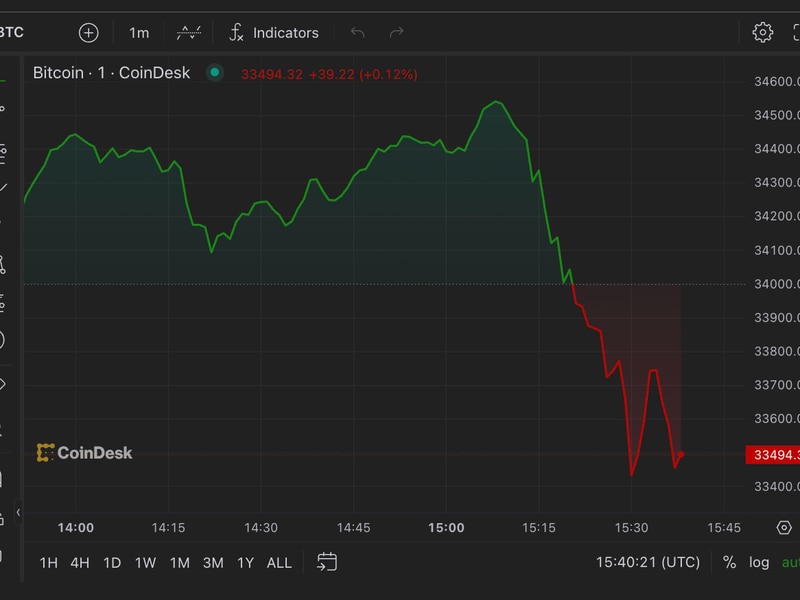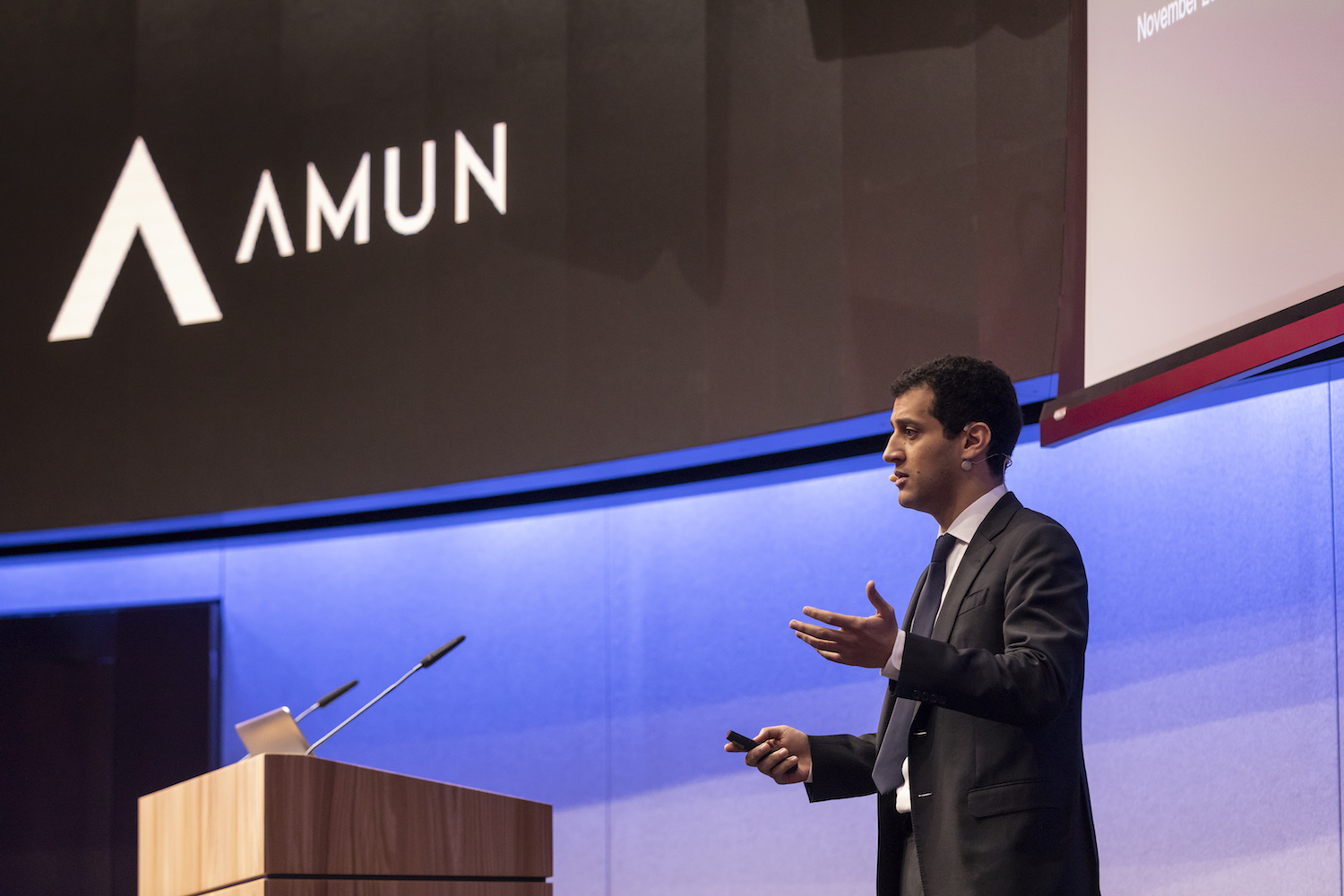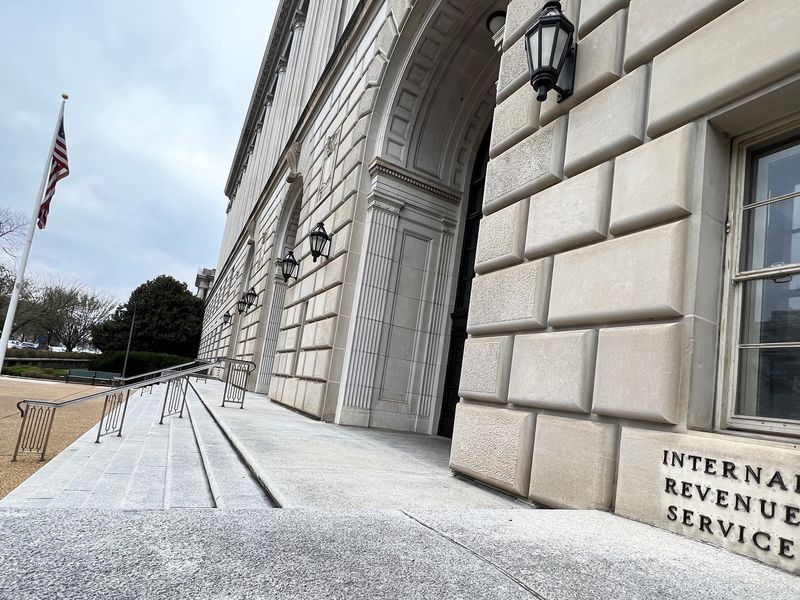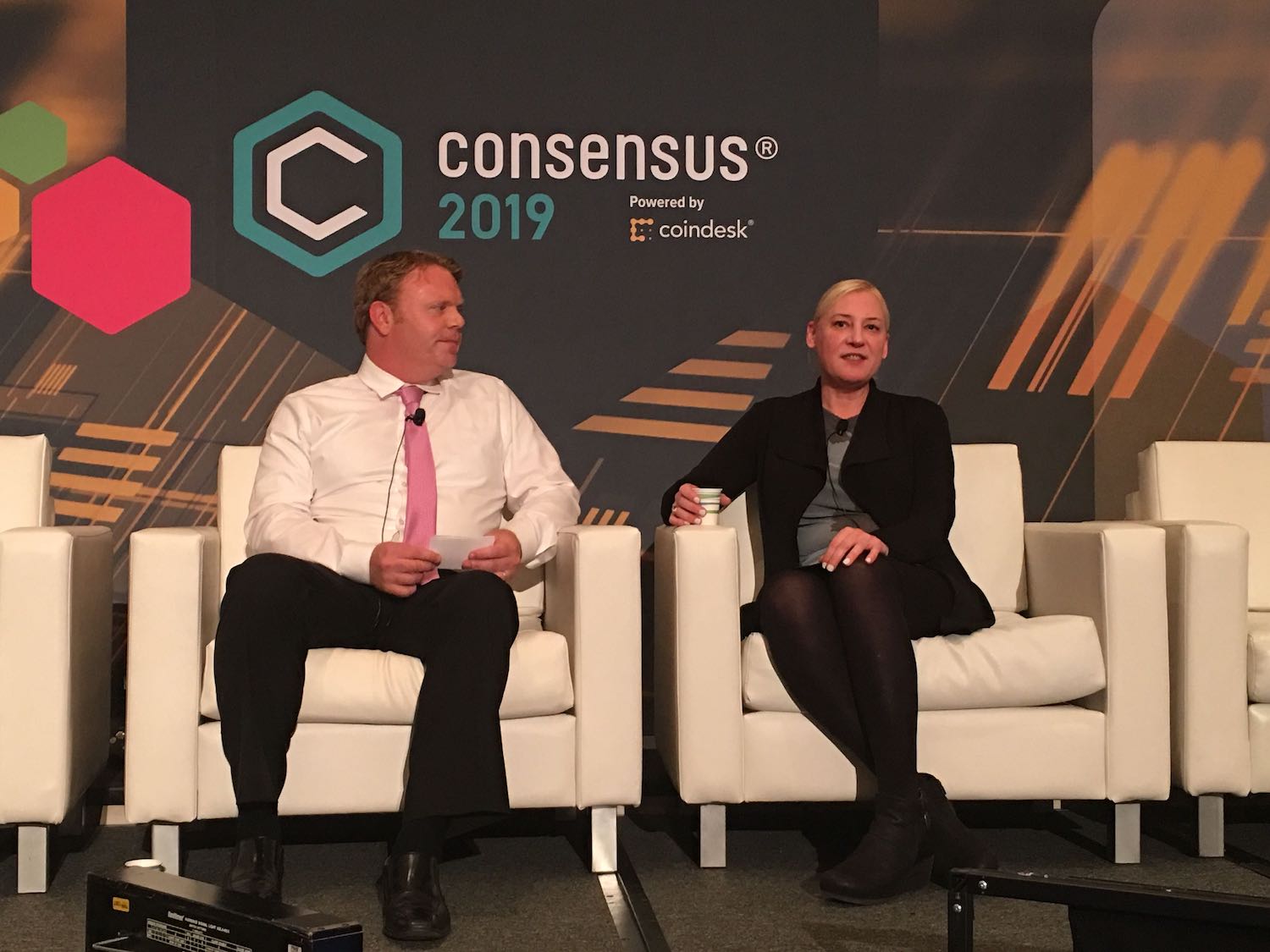Introducing CoinDesk’s ‘Consensus at Consensus’ Project
Join the most important conversation in crypto and Web3 taking place in Austin, Texas, April 26-28.
:format(jpg)/s3.amazonaws.com/arc-authors/coindesk/d1d917b0-ea51-4a6f-9c33-dec206570812.png)
Marc Hochstein is the executive editor of Consensus, CoinDesk’s flagship event. He holds BTC above CoinDesk’s disclosure threshold of $1K and de minimis amounts of other digital assets (details on profile page).
Join the most important conversation in crypto and Web3 taking place in Austin, Texas, April 26-28.
This week, about 12,000 people will congregate in Austin, Texas, for Consensus – the largest and most influential annual conference of the global digital assets community. While sessions with boldface names like Chelsea Manning, Balaji Srinivasan and William Shatner are sure to attract big crowds at the Austin Convention Center and from virtual ticket holders, some of the most important conversations will be taking place offstage.
For Consensus 2023 we at CoinDesk are adding something new and timely: Intimate group discussions, in which a cross-section of interested parties – including developers, investors, government officials, entrepreneurs, and non-profits – will seek solutions to the crypto industry’s thorniest challenges. Coinciding with CoinDesk’s 10-year anniversary, it reflects a commitment to use our convening and publishing clout to help the Consensus community move the industry forward in a collaborative and constructive way.
The 11 discussions will attack the most pressing issues challenging the industry today, including the newly urgent subject of regulation, finding the balance between privacy and transparency, how to bring self-custody to the mainstream, and the future of crypto media.
Sometime after the event, we will publish the findings of the deliberations in CoinDesk’s first-ever Consensus @ Consensus Report intended to point a way forward for an industry that is rebuilding in the wake of a wrenching downturn.
Examples of topics include: protecting the privacy rights of users while furthering the goals of law enforcement and regulators; making good on crypto’s early promises of individual empowerment and social inclusion; using the technology to address environmental challenges within and outside the industry; and building and governing new forms of digital communities.
We plan to make the discussions a routine feature of the conference, reinforcing Consensus’s status as the annual gathering of the crypto and blockchain community’s far-flung, disparate stakeholders where they collectively try to find common ground for the year ahead.
Given the many unsolved issues around standards, regulation and technology exposed by last year’s tumultuous downturn in crypto markets, we see this as a vital contribution for CoinDesk and Consensus to the advancement of the technology in the broadest public interest.
Four of the off-stage conversations will be invitation-only and subject to the Chatham House rule, meaning the ideas conveyed in the room may be reported only without attribution. This is meant to give those participants whose institutions hold a tight rein over their public statements a safe space for candid, constructive discussion.
We’re calling these sessions “charrettes,” an architectural term defined by Oxford Languages as “a meeting in which all stakeholders in a project attempt to resolve conflicts and map solutions.” In the spirit of openness that defines the crypto community at its best, during the conference select representatives from the charrettes will take the stage to share and discuss the takeaways from their conversations.
Participants in the charrettes were chosen by CoinDesk’s content staff, drawing in part on the recommendations of an advisory council.
Four other discussions, known as brainstorms, will be Town Hall-style sessions open to all Consensus attendees with invited speakers leading the conversations. Three others, known as convenings, will have a hybrid structure, combining roundtable discussions with interactive discussions.
A select group of CoinDesk staff will be assigned to listen to each of these discussions and then summarize and synthesize the takeaways in the Consensus @ Consensus Report, scheduled for publication on June 5.
It’s a challenging but exciting time for the industry, buffeted like never before by economic, political and technological change. At CoinDesk, we don’t tell people how to address these challenges but believe that by encouraging frank, constructive multi-stakeholder dialogue like this we can help foster a collective effort to do so in the interests of humanity.
Here’s a breakdown of the 11 sessions:
-
How Does Crypto Improve its Image? There’s no question the crypto industry is viewed less favorably than in 2021. Beyond the obvious– i.e. stop defrauding people – what, if anything, can be done to better market the technology to a skeptical public?
-
The Digital Future of Public Money: The evolution of public money is rapidly accelerating as countries around the globe explore central bank digital currencies (CBDCs). But critical questions about privacy, financial inclusion, global standards, interoperability, and the role of private sector stablecoins remain.
-
Crypto’s Environmental Conundrum: How Can Blockchain Accelerate ESG and Protect the Planet? There’s been a heady debate over Bitcoin’s carbon footprint and whether it can drive renewable energy development. But there are also many projects using tokens and blockchain-based data-sharing to help businesses, investors, NGOs and users coordinate climate action. Can these different stakeholders converge on a holistic approach?
-
The Quest for a Global Regulatory Framework: Supra-national organizations like the IMF, FATF, Basel Committee and the Financial Stability Board are calling for worldwide regulatory standards for crypto, to stop wily actors from migrating to the most permissive jurisdictions. Is such uniformity politically feasible? Is it even desirable? (Invitation only.)
-
Privacy, Transparency and Law Enforcement: Where is the Path to Equilibrium? Law enforcement, financial regulators and the taxman want to make even the smallest crypto transactions legible, but users want privacy. What is the appropriate balance? (Invitation only.)
-
No More FTXs: Finding the Right Tech and Policies for Self-Custody to Go Mainstream: FTX and other exchange bankruptcies have underscored the danger to users of trusting centralized entities with the keys to their crypto. But custodying your own keys has a serious adoption problem, for myriad reasons. How can policymakers create effective guardrails for consumer protection without undermining crypto’s empowering attributes? (Invitation only.)
-
Can (and Should) DeFi Defy the Regulators? Without the traditional middlemen to deputize, regulators are struggling to figure out how to police decentralized finance, a sector which has held up during the crypto winter but which continues to suffer from software breaches, bugs and rug-pulls. Is the traditional regulatory model appropriate for DeFi, or should policymakers work with the industry on software standards to protect users? (Invitation only.)
-
Brainstorm: Grassroots Innovation: Realizing Crypto’s Empowerment Promise for Social Inclusion: Crypto advocates often talk up the technology’s social impact but its potential has been hindered by clunky user experiences and a bias in funding toward fast-buck-making ventures. Nonetheless, around the world, people are spinning up locally-focused applications that don’t get the attention they deserve. What can be done to accelerate these projects toward maximum impact for the communities they serve?
-
The Future of Crypto Media in the Age of AI and Web3: Never has crypto more needed sustainable media outlets that call out bad actors, keep the good ones accountable, and separate great ideas from snake oil. But, as exciting as it is to cover this hurly-burly industry, crypto journalists face unique obstacles: weaponized disinformation; steep learning curves; resource imbalances. With blockchain developers devising new tools and decentralized approaches to the economics of digital content, journalists and innovators discuss how to foster the reliable, trusted media this industry needs.

DISCLOSURE
Please note that our
privacy policy,
terms of use,
cookies,
and
do not sell my personal information
has been updated
.
The leader in news and information on cryptocurrency, digital assets and the future of money, CoinDesk is a media outlet that strives for the highest journalistic standards and abides by a
strict set of editorial policies.
CoinDesk is an independent operating subsidiary of
Digital Currency Group,
which invests in
cryptocurrencies
and blockchain
startups.
As part of their compensation, certain CoinDesk employees, including editorial employees, may receive exposure to DCG equity in the form of
stock appreciation rights,
which vest over a multi-year period. CoinDesk journalists are not allowed to purchase stock outright in DCG
.
:format(jpg)/s3.amazonaws.com/arc-authors/coindesk/d1d917b0-ea51-4a6f-9c33-dec206570812.png)
Marc Hochstein is the executive editor of Consensus, CoinDesk’s flagship event. He holds BTC above CoinDesk’s disclosure threshold of $1K and de minimis amounts of other digital assets (details on profile page).
Learn more about Consensus 2023, CoinDesk’s longest-running and most influential event that brings together all sides of crypto, blockchain and Web3. Head to consensus.coindesk.com to register and buy your pass now.
:format(jpg)/s3.amazonaws.com/arc-authors/coindesk/d1d917b0-ea51-4a6f-9c33-dec206570812.png)
Marc Hochstein is the executive editor of Consensus, CoinDesk’s flagship event. He holds BTC above CoinDesk’s disclosure threshold of $1K and de minimis amounts of other digital assets (details on profile page).









